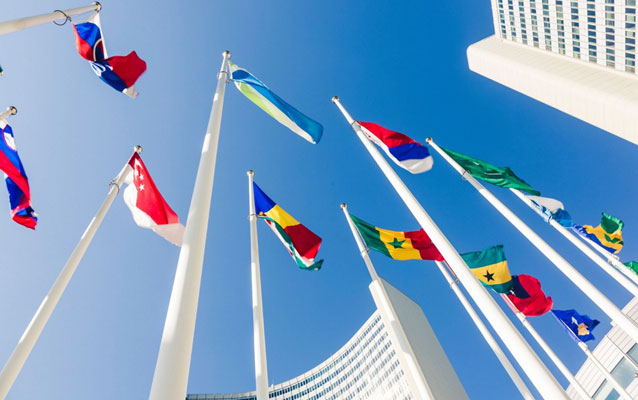By: Eman Mudassar Tarar

Under a range of conditions, states can best achieve security by cooperation. Likewise, it has become the need of the hour as well.
Interdependence liberalism assumes that states are not the only important actors, social welfare issues share center stage with security issues on the global agenda, and cooperation is as dominant a characteristic of international politics as conflict.
Moreover, economic interdependence lowers the likelihood of war by increasing the value of trading over the alternative of aggression. It assumes that increased interdependence between countries reduces the chance of them engaging in conflict.
The Liberal perspective promotes the use of institutions, like the International Monetary Fund and the World Bank, to encourage cooperation for similar goals.
These institutions provide states with absolute gains from complex interdependence while neglecting the idea of power.
Cooperation may be achieved through complex relationships among states, limited to the liberal lens. Such cooperation leads to a peaceful world order among states to provide peace from shared cooperation as long as there are mutual gains.
Economic gains through trade and foreign investments negate any power struggles among states, addressed by liberal theorists. Extending the complex interdependence, especially economically, works to better stabilize peace among states.
On the other hand, in terms of military forces, co-operative policies could include arms control and unilateral restraint. An arms control agreement that limits the size of deployed forces can provide protection against losing an arms race. An arms control agreement that limits forces that are especially effective for attacking can enhance both states’ abilities to defend and deter, leaving both more secure than if they had competed in that type of offensive weaponry.
In addition to enhancing states’ military capabilities, cooperative policies can improve their political relations, and in turn, increase their security. By cooperating, a state may be able to communicate information about its motives, leading the adversary to conclude that the state is more likely to be a security seeker; cooperation becomes less risky, so states adopt cooperative policies that make cooperation still more attractive.
As of now, the international system encourages moderate behavior and enough power; anything else must be explained at some other level of analysis. Overexpansion, self-encirclement, and overextension should be considered as pathological.
Thus, great powers are often satisfied with the existing balance of power, rarely seek to change it through military force, security is abundant rather than scarce, and states have little incentive to seek additional power.
We need to understand that all the movement of people and goods between two states leads to more interdependence and less tendency to solve disputes in a military way.
Thus, “war” and “arms proliferation” should be seen as something to be avoided.
The writer is a student of International Relations at Quaid-i-Azam University, Islamabad and can be reached at [email protected].






